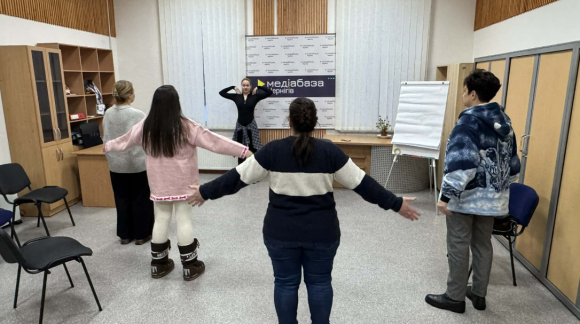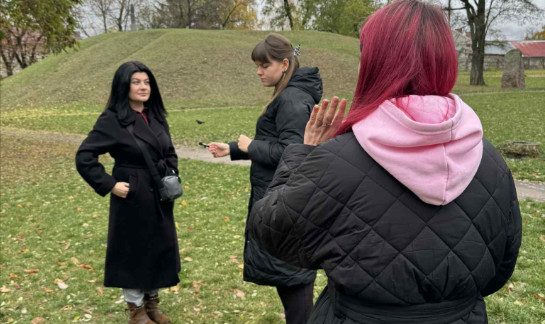90% of journalists left Chernihiv following the start of the full-scale invasion, and most of those who remained were not working.
Pavlo Pushchenko, the IMI representative in Chernihiv oblast, spoke about this in his interview with the Institute of Mass Information.
At the same time, he says, TV channels “Novyi Chernihiv” and “Suspilne Chernihiv” never stopped working while the city was under siege.
“They were filming, editing, sharing that content, trying to broadcast the information to the public, so that people would know about the situation in Chernihiv. Of the website’s journalists, Vladyslav Savenok remained. He had a lot of photos, he was posting them on social media. He has many reports from the sites of the greatest destruction. There were people who were not in journalism before, but became fixers. We had a person who simply filmed nice videos, Serhiy Lamosa. He became a documentarist, recording all the destruction that was happening in Chernihiv. He also had a lot of content during that period,” said Pavlo Pushchenko.
He explained that the media had stopped working for several reasons.
“The first reason was great danger. The second is a technical one, the lack of technical capabilities, because when there is no power, no connection, no water or heating or anything, working was very difficult. Moreover, some teams weren’t there physically: everyone was scattered all over Ukraine and abroad. They were gradually restoring there. If we speak of websites, they would mostly share and repost information they found on the Internet or reports by those journalists who remained. Some websites stopped working. All printed newspapers stopped making news issues on the first day: the editorial offices had no chance to publish them,” said the IMI representative.
As IMI reported, a few days before Russia’s full-scale invasion of Ukraine, the team of “Nakypilo” (Kharkiv) drew up an action plan for such an event. It proved helpful during the evacuation.
Meanwhile, the media of Kirovohrad oblast experienced a certain confusion in the first week or two after the full-scale Russian invasion of Ukraine. The journalists did not understand how best to present information: to copy reports from the national media or to build their own strategy.



